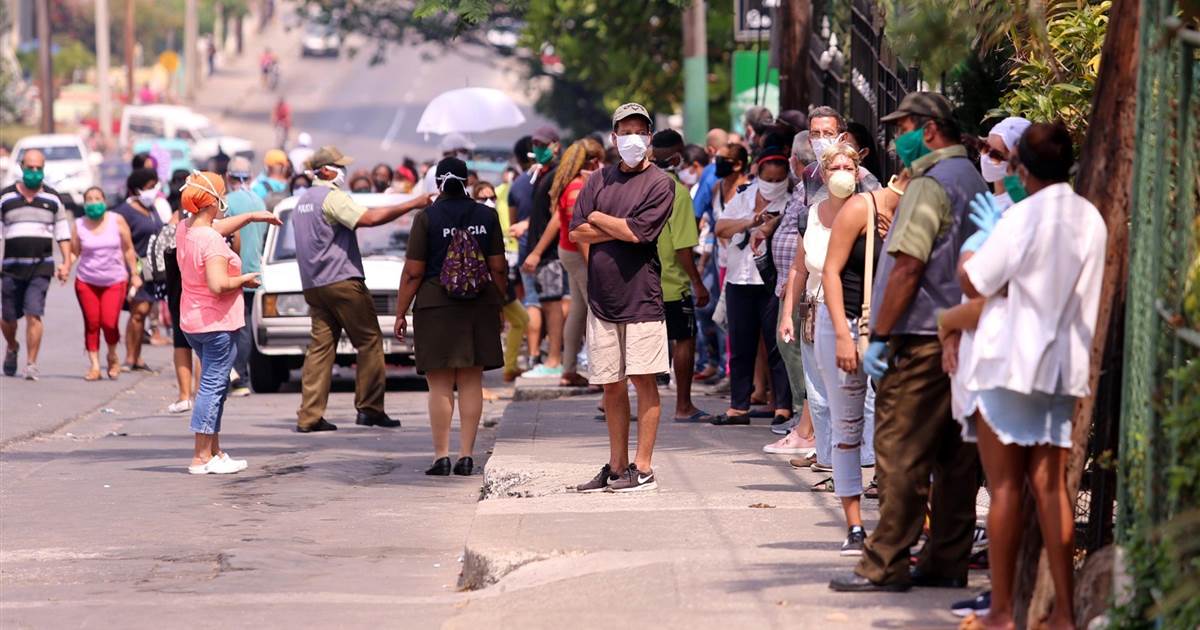
By Mao Shiotsu
Cuba in the 1960’s was impressively united. Under the charismatic leadership of Fidel Castro, it seemed that the eight million citizens were all glimmering with hope for the promised future of equality, health, and prosperity. In her memoir, “Dancing with Cuba,” dancer and journalist Alma Guillermoprieto details how the Revolution was central in people’s lives, a beacon of light that cut through their days of money and food deprivation. Just a few years of hardship, many thought, before achieving a Cuba of abundance.
But today in Havana, a couple wakes up at 7:00 to travel to a supermarket on the other side of the city, then jostles past other desperate Cubans only to get their hands on two bags of chicken thighs. Many bodega (state-run supermarket) shelves are empty. Faced with the alarming shortage of food, the Castro government has begun to ration basic products like rice, beans, and chicken. The public has even been told to grow their own food in their gardens. The Revolution failed. What’s left of the dream seems to be only the realistic parts of communism that cannot work without the idealistic impossibility that is complete equality.

Maybe the fatal crux of the Revolution was already apparent in 1970, when Castro, in a speech flocked by supporters and broadcasted on television, declared that the 10-million Ton Sugar Harvest, a project that aimed to build Cuba’s economy, had failed. Even after mobilizing masses of the population and funnelling resources into the project, only around eight million tons could be harvested. The agricultural sector simply didn’t have enough resources and manpower. The project was clear evidence that Cuba’s food production capacity was lacking.
Castro’s government tried to fix this by pouring money into the agricultural sector and creating agricultural research centers. Yet even then, perhaps due to a lack of land or just poor organization, Cuba could not be self-sufficient in food. In 1989, more than half of the food in the country was imported. A lifeline for Cuba was a fellow communist state, the USSR, which also supplied the island with subsidized oil, a crucial resource for food production. Castro also built ties with Venezuela under socialist President Hugo Chávez.
But such dependency promises inevitable failure down the line. When the USSR collapsed, Cuba plunged into the “Special Period,” the infamous decade of economic depression and famine. Today, Venezuela’s Maduro government is scrambling with its own humanitarian and economic crisis. Never having fully recovered from the “Special Period,” Cuba now imports around two-thirds of its food.
Then recently, the coronavirus started plaguing the world. Cuba closed its borders, and tourism, a key part of the Cuban economy, is now almost non-existent. Basic supplies are scarce. And even during the current global health crisis, the Trump administration continues to impose harsh sanctions on Cuban trade. With the severe restrictions, the island’s food imports and agricultural production has plummeted, exacerbating the already deteriorating economy and widespread food shortage.
The divide between socialist and democratic governments, although dating far back, now displays perhaps a new level of animosity. Cold war foes will forever be foes like two gangs at a school playground, but the reality is, behind those governments are millions of civilians. The people, whose only crime is to live in that country, bear the brunt of the game.
It makes one wonder if a difference in political views is justification enough to cause innocent publics go desperately hungry. But that is what has always happened. Civilians suffer because of political reasons. Of course, politics is a vital thing that the world runs by, but sometimes it just seems like a stubborn child’s foolish contest.
Mao Shiotsu is a rising sophomore in Jonathan Edwards College. You can contact her at mao.shiotsu@yale.edu.